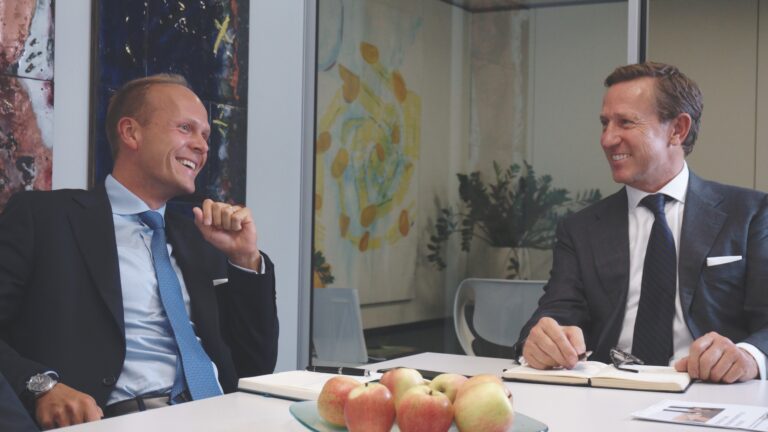Hard talk with Václav Klaus
| Dear Ladies and Gentlemen
On May 4, 2020, my old friend Claudio Grass published an interview he had conducted with former President of the Czech Republic, Prof. Ing. Václav Klaus. Amid a second Covid-19 wave, the interview has not lost any of its relevance. Claudio Grass acts as an independent advisor to high net worth individuals for well over a decade. Please enjoy the read: “Claudio Grass (CG): The magnitude and the global scale of the lockdown and shutdown measures we have seen during this corona-crisis are unprecedented. How do you evaluate the response compared to the threat itself? Do you believe it is justified? Václav Klaus (VK): I do not pretend to be an expert in epidemiology, but my background in economics and statistics tells me that the threat is smaller than the consequences “organised “by governments all over the world as a reaction to this pandemic. I would add unnecessary consequences. The authorities reacted in an exorbitant way, in a moment of fear. This is partly the result of the current “online democracy “. CG: The “emergency measures” and the restrictions that have been imposed on civilians’ basic rights have served as a reminder of the true extent of the state’s powers. Do you find this worrying and do you see a risk that these new, extraordinary powers might not be as easy to roll back once the crisis is over? VK: The restrictions on basic civil rights that were introduced so swiftly and so easily demonstrate the power of the modern state, with all its new, “smart” technologies and drastically expanded enforcement capabilities. Economists often talk about the so-called “ratchet effect”, or the limited ability of existing processes and dynamics to be reversed and to return to normal once a specific event has radically altered them. It is true of prices, of productivity, and it is also true of social and political systems. Therefore, I am afraid it will be very difficult, if not impossible, to return to the pre-corona days. CG: On an economic level, what is your assessment of the impact of the shutdown measures? VK: Most, if not all, of the circulating quantitative estimates and forecasts, are wrong. The “experts” should first say how long the quarantine restrictions will last and when the economic shutdown will be fully lifted. Their economic forecasts depend on the length of the quarantine period. They should announce explicitly when they plan to end it. Until this is established and known, the current forecasts are economically meaningless. CG: The monetary and fiscal interventions that we have seen so far are as extreme and as shocking as the shutdown policies themselves. Do you think they will be enough to keep the economy afloat though, or is a deep and long recession simply inevitable? VK: The monetary and fiscal measures – unacceptable for the true democrats – may have positive short-term effects, but they will destabilise the economy and public finances for a very long period of time. They could lead to very high inflation. CG: Trillions upon trillions are being injected into the system, while wild ideas like the Universal Basic Income have become mainstream. Apart from the obvious monetary and economic risks of these policies, do you also foresee political and social implications? VK: Those of us in the ex-communist countries were used to living in a world of something like “Universal Basic Income”. We wanted to get rid of communism because of principles like this. These principles destroyed the motivation to work, which proved to be ruinous. VK: I would not call it “central planning” yet. I prefer Walter Eucken’s term (used for the description of the German economy in Hitler’s time), “centrally administrated economy”. It is not planning in its original meaning. It is the very heavy and visible hand of the government at work, instead of the “invisible hand” of the market. CG: The corona-crisis has also had some very serious geopolitical ramifications, especially vis-à-vis China. What are the main changes that you expect to see going forward in this arena? VK: We should not use this situation for the introduction of new dangerous foreign relations policies and to strengthen the demonisation of countries such as China and Russia. To my great regret, however, we see this is already happening. CG: What about the future of the EU? Do you think this crisis has further weakened it and what is your outlook for the bloc? VK: The EU will – unfortunately, in my view – survive the corona-crisis. Its exponents will use it to further weaken nation-states. They are on the defensive now, but they will reemerge again in full strength very soon. I wish I will be proven wrong, but I do believe they will use this crisis to their advantage and I fear they will do so successfully. CG: Citizens, investors and savers everywhere are justifiably scared, if not of the virus itself then certainly of financial ruin. In your view, what can we do to take back at least some control of our own future? VK: It is quite simple. The people should say “NO” to all of it. Otherwise, what lies ahead is a real-life approximation of the dystopian “Brave New World” of Aldous Huxley.” Thank you very much, Claudio for letting me use your interview with former President of the Czech Republic, Prof. Ing. Václav Klaus. Regular readers of my weekly emails know that I cannot entirely agree with all of it and yet, the interview carries an alternative perspective to what can generally be found in mainstream media and is therefore not only interesting but also meaningful. Please feel free to share your ideas and thoughts with me, but please do not forget (instead of hitting the reply button) to send your messages to smk@incrementum.li And now, Ladies and Gentlemen I wish you a great day and weekend. Yours truly Stefan M. Kremeth Tel.: +423 237 26 60 |

